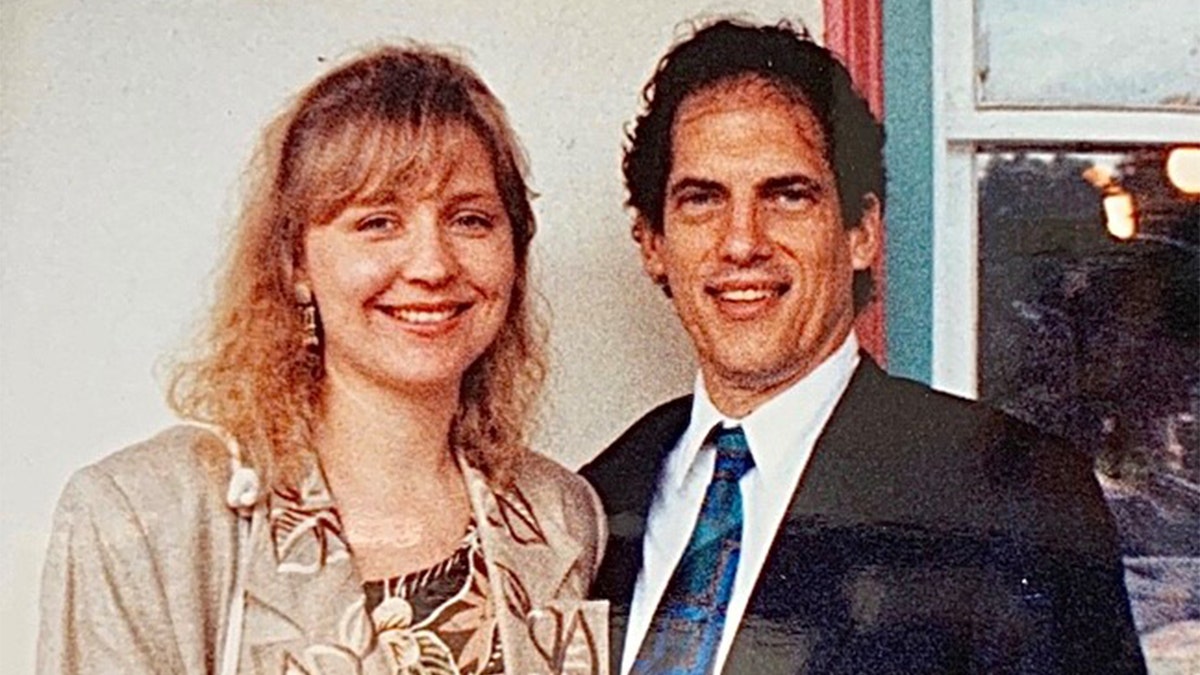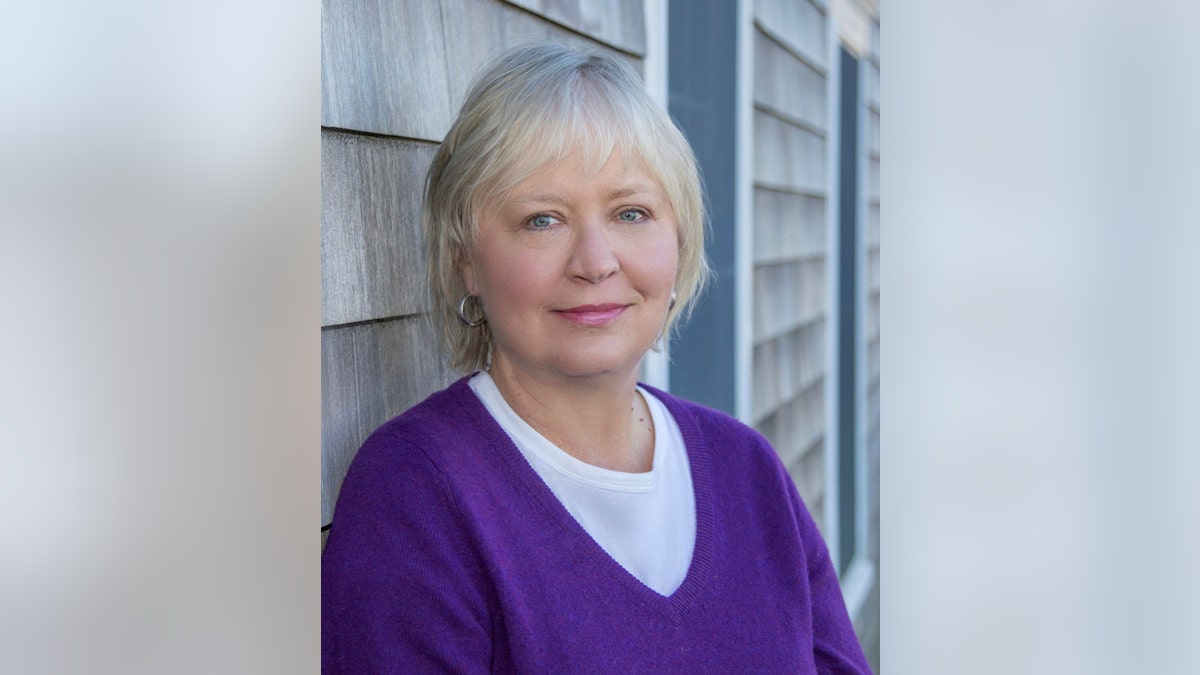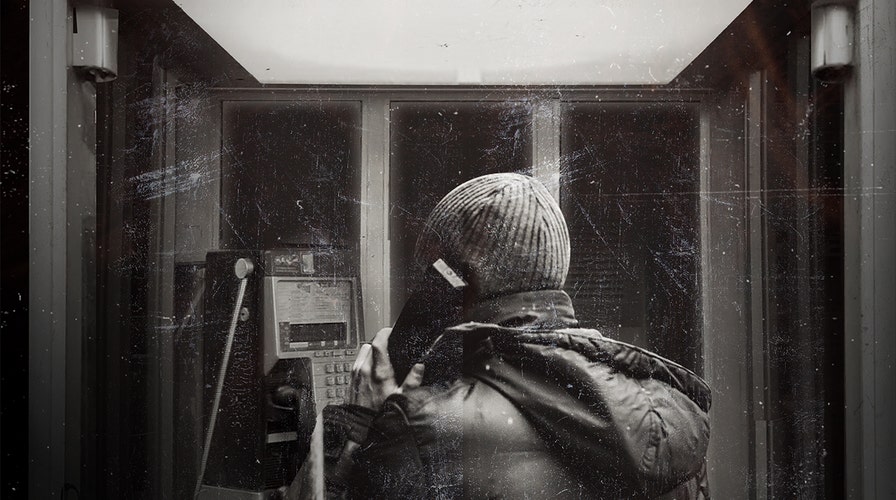Fox News Flash top entertainment headlines for January 19
Fox News Flash top entertainment and celebrity headlines are here. Check out what's clicking today in entertainment.
EXCLUSIVE: It was 1980 when Allan Bridge, a restless painter from Washington, D.C., posted flyers around New York City encouraging people to call a mysterious line and "apologize for their wrongs… without jeopardizing themselves."
Thousands of residents not only dialed in, but they revealed their deepest, darkest secrets involving theft, infidelity and murder.
Bridge’s widow, Marissa Bridge, is now coming forward and recounting how the once promising project took a horrifying turn in a new Wondery podcast titled "The Apology Line" where listeners can explore how the former "happy go lucky" artist got more than what he bargained for. It features interviews with those who knew Bridge, as well as actual recordings made over the years provided by Marissa, who narrated the podcast.
Allan Bridge passed away in 1995 at age 50.

Wondery's new podcast titled 'The Apology Line' focuses on the life of New York City-based conceptual artist Allan Bridge. (Wondery)
"He died while The Apology Line was still running," Marissa told Fox News. "And it always bothered that he wasn’t able to complete it in the way he wanted to. So I felt it was my duty as his wife and being a supporter of the line to always make sure it didn’t disappear into the dustbin of history, so to speak. And that it would be brought to the public again, in some way, shape or form."
Bridge moved to New York City in 1977 where he pursued carpentry to help make ends meet. He also resorted to shoplifting.
"It was a problem that he’d had since he was a kid," Marissa explained. "He started to think about how he could do something that would help other people. And then he came up with the idea of the telephone and an answering machine as a way to give people the opportunity to apologize, to let go of the guilt and pain they were feeling for their misdeeds."
The concept was simple. Bridge solicited the public to call a machine-answered phone line that was secretly connected to his loft and apologize for anything at all. Callers were instructed to "not identify yourself and call from a pay phone to prevent tracing," the New York Post reported. According to the outlet, the flyers also made it clear that The Apology Line had no association to police, government or any religious organizations.

Marrisa Bridge, the widow of artist Allan Bridge, narrates Wondery's 'The Apology Line.' (Wondery)
The calls came in immediately. By 1983, voyeurs could phone in and listen to recorded sessions, the outlet noted. The line was receiving about 100 calls a day. Bridge, who wanted to conceal his identity, became known as "Mr. Apology."
The calls never stopped for 15 years.
"In the very beginning, callers talked about seeing murders," said Marissa. "The first few weeks of the line, someone called and they said that they robbed and killed homosexuals, which corresponded to what was actually happening in New York City at the time. That bothered him from the very beginning… It was a real moral dilemma for Allan. He wrestled with this for a very long time."
In the podcast, listeners will also learn of Ritchie, a self-confessed serial killer who phoned in for five years. And there was Bernie, who vowed he was going to hunt Bridge down and murder him.
"That really upset me," Marissa admitted. "At that point, I wasn’t living with Allan because it was in the first year of our relationship. And it bothered Allan very much. This was a rough time in New York City back then when there was a lot of crime. The city had almost gone bankrupt. There were very few police. It was like the Wild West of Midtown, a low point for New York City. So it wasn’t outrageous to think that someone would do something like [that]. There was no money and people do a lot of crime when there’s no money. It was rampant. So we were very scared."

The Apology Line first came to life in 1980. (Wondery)
Marissa was dating Bridge at the time The Apology Line was created and the couple tied the knot in 1984.
The project would eventually take hold of the marriage. Occasionally, Allan would pick up an incoming call and talk to someone who sounded suicidal. There were also runaways who felt unloved by their families. Vietnam veterans dialed in and detailed the "really horrible things" they did overseas in the line of duty. Bridge felt committed to The Apology Line, but according to his widow, it ultimately "consumed" him.
"He was 35 at the time when I met him," said Marissa. "He was young, super excited and dedicated to it. And he kept that energy up. But over the years, it just became his primary work. He didn’t make money from it. So he had to support himself doing carpentry. And over the years, it certainly took a toll on our relationship."
"These calls were a heavy burden to carry," she continued. "How can you unplug something like this when people really need you? It was just murderers that weigh heavy, but people had so many problems. Everything you could possibly imagine, people brought to The Apology Line. Broken hearts, broken families - all kinds of tragic things were happening to people. Allan believed in his work. And I wouldn’t have ever told him to stop. Artists have to do what they have to do. He felt this was his life’s work until he couldn’t do it anymore."

Marissa Bridge hopes 'The Apology Line' on Wondery will show readers just how passionate her late husband was in maintaining his art. (Wondery)
The only time Bridge ever made money off of his project was when HBO made a 1986 movie titled "Apology." In addition to devoting himself to The Apology Line, he also began publishing monthly collections of the best confessions in 1993, the New York Times reported.
"At the end of his life, he was going through a very difficult time," Marissa admitted. "He had three telephone lines at that point… he was just completely overwhelmed and wondering how he could continue doing all of this. He was in a down place. He wasn’t as happy go lucky as he once was. At that point, he was struggling under the burden of trying to do all this work pretty much by himself. He had a few volunteers who helped as much as they could, but it just became too much. There was no money and no one was getting paid. It was a tough situation."
In 1995, Bridge was struck and killed by a jet ski while diving in Shinnecock Inlet on Long Island. While his death was widely covered by the press at the time, the jet skier was never caught.
"I would hope that they would apologize," said Marissa. "It was an accident. It was not their fault. It was an accidental death, but I’m sure that person carries around a lot of pain about it. And if they did come forward to apologize, I think it would be very healing for them. And for me. Although, I have forgiven that person because I knew that it wasn’t done intentionally. It was just a tragic accident. So I don’t hold any ill will towards the person at all. Allan was just at the wrong place at the wrong time."
CLICK HERE TO GET THE FOX NEWS APP
Marissa hopes that listeners tuning in will not only understand the power of apologizing but also better understand how determined Bridge was in pursuing his beloved art.
"We’re all the same under the surface," said she. "We all have problems. We all have pain… In spite of all the difficulties Allan faced in running the line, he really believed in what he was doing. And I hope that comes across in this [podcast]. If something is important to you and you believe it, do it. Do it well."
"The Apology Line" is available for streaming through Apple Podcasts.






















